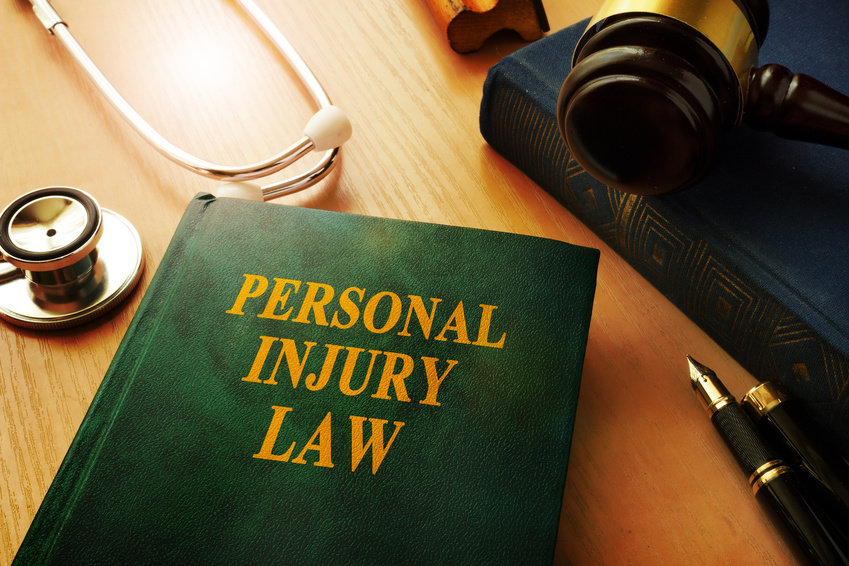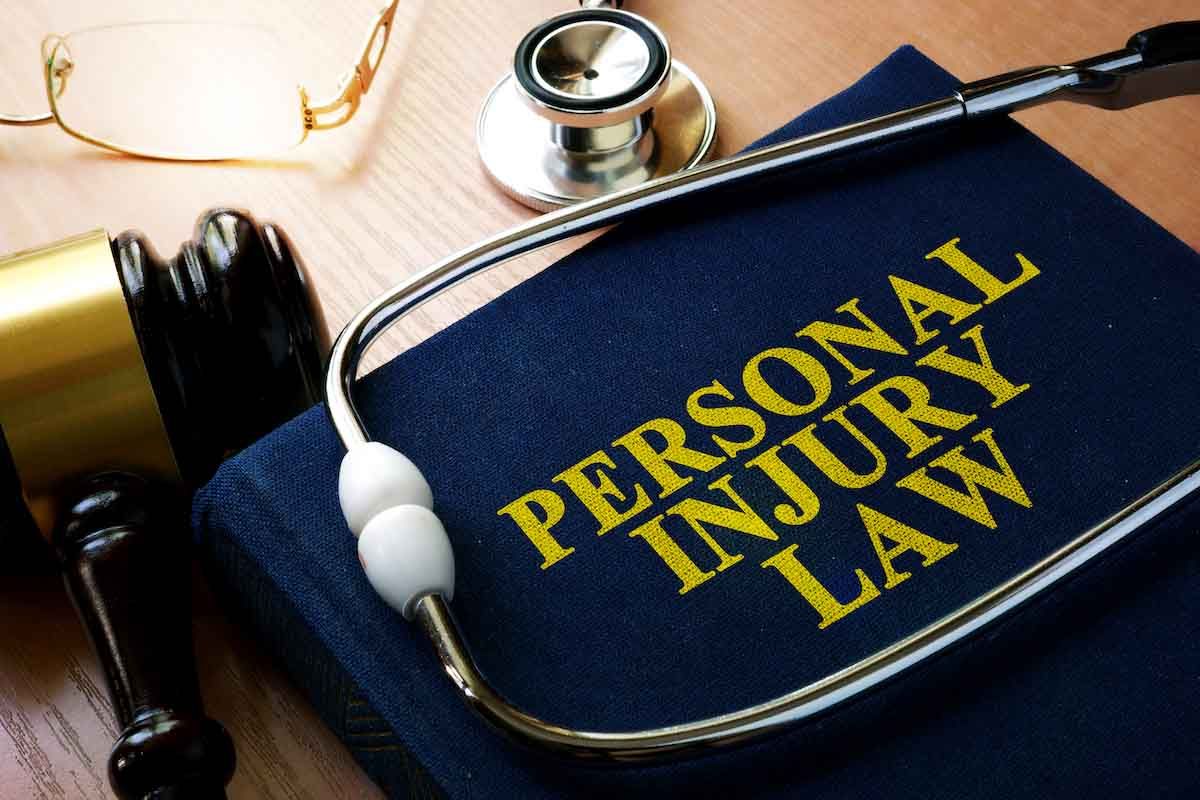Recognizing the Duty of an Attorney in Personal Injury Instances: What You Need to Know
Recognizing the role of an attorney in personal injury situations is essential for those looking for justice. Lawyers play a critical role in steering with the intricacies of the legal system. They gather evidence, develop obligation, and negotiate with insurance provider. Numerous people are uninformed of the full level of an attorney's obligations. What specific techniques do they utilize to secure their clients' rights and protected reasonable settlement? The answers might surprise you.
The Value of Legal Depiction in Personal Injury Instances
Although several people may take into consideration taking care of personal injury cases on their own, the complexity of lawful processes frequently necessitates professional assistance. A lawyer concentrating on personal injury legislation brings vital competence to a situation, navigating intricate lawful frameworks that can overwhelm the inexperienced individual - Personal Injury Attorney. They recognize the nuances of liability, insurance coverage negotiations, and laws of constraints, ensuring that customers do not miss out on important deadlines or chances
Legal depiction can notably boost the opportunities of acquiring fair compensation. Lawyers are competent in assessing real worth of insurance claims, considering clinical costs, shed incomes, and emotional distress. They possess the negotiation abilities required to deal effectively with insurer, who usually aim to decrease payments. Ultimately, having an attorney can give emotional assistance and decrease tension for customers throughout a challenging time, enabling them to concentrate on recovery while their situation is professionally taken care of.
Gathering Evidence and Structure a Strong Case
In personal injury situations, the collection of numerous sorts of evidence is important for establishing liability and supporting a client's insurance claim. Documents, including medical records, mishap reports, and witness declarations, plays a vital function in developing a solid situation. Attorneys should focus on thorough evidence collecting to boost the chance of a beneficial result for their clients.

Kinds Of Proof Required
When seeking an injury instance, the collection of durable evidence is crucial for developing liability and supporting the plaintiff's narrative. Key sorts of evidence consist of clinical records documenting injuries, which offer a factual basis for insurance claims of physical damage. Photographic evidence records the scene of the case, while witness statements can prove the plaintiff's account. Furthermore, police reports may use a main viewpoint on the occasion. Surveillance video, when available, offers as a powerful device to confirm insurance claims. In addition, professional testimony may clarify complex concerns, specifically in instances involving technological details. Collectively, these kinds of proof aid produce a complete instance that improves the likelihood of a beneficial result for the victim.
Importance of Documentation
Documents plays an essential duty in the success of personal injury cases, working as the structure whereupon cases are developed. Thorough and precise paperwork enables lawyers to collect and provide essential evidence, such as medical documents, mishap records, and witness declarations. This evidence not just validates the target's claims however additionally enhances their case for compensation. Additionally, comprehensive paperwork aids in establishing the level of injuries and the effect on the sufferer's life, promoting negotiations with insurance coverage firms. By meticulously arranging and managing these documents, lawyers can properly advocate for their clients, making sure that no substantial details are ignored. Inevitably, properly maintained documentation is vital for attaining favorable results in personal injury lawsuits.
Recognizing Responsibility and Oversight

In personal injury instances, attorneys play a significant function in collecting evidence and building a strong case around these principles. They analyze the conditions bordering the occurrence, determine accountable celebrations, and articulate the violation of responsibility that occurred. Understanding these concepts is vital for both clients and lawyers as they navigate the complexities of personal injury law.
Working Out With Insurance Policy Business
Negotiating with insurer requires a calculated strategy to protect fair payment for personal injury claims. Attorneys play a crucial function in this procedure, leveraging their expertise of insurance coverage and settlement methods to advocate for their customers effectively. They begin by gathering extensive documents, consisting of clinical records, accident records, and proof of problems, to construct a compelling case.
Attorneys typically start the settlement by providing a need letter outlining the claim's details and the desired compensation amount. This letter serves as a starting factor for conversations. Throughout arrangements, attorneys stay assertive yet specialist, responding to reduced deals with accurate evidence and highlighting the strengths of their instance.
Furthermore, attorneys understand the importance of persistence in settlements, as insurance provider might use techniques to postpone or lessen payouts. Eventually, their experience assists guarantee customers obtain a settlement that properly reflects the degree of their injuries and losses.
Getting ready for Trial: What to Anticipate
Getting ready for trial in an individual injury situation involves an organized technique to comprehend the trial procedure and the important evidence that will certainly exist. Lawyers have to detail the actions of the trial, ensuring their clients are aware of what to anticipate. In addition, they should determine and organize crucial evidence that will certainly support the instance and influence the court's decision.
Test Process Summary
The test process in personal injury situations needs cautious company and calculated preparation. Attorneys must prepare their situation meticulously, making certain all needed paperwork, witness lists, and legal arguments are in order. The presentation of opening declarations establishes the stage, allowing each side to outline their viewpoint. Following this, the complainant's case unravels, where witnesses and experts provide statements sustaining the case. The defense after that offers its case, usually intending to challenge the plaintiff's disagreements and proof. Throughout the test, lawyers need to continue to be hop over to these guys watchful, adjusting strategies as essential based upon the unfolding dynamics in the court room. The trial ends with shutting debates, where both sides summarize their positions before the court ponders, leading to a decision that can substantially influence the lives entailed.
Secret Proof Discussion
While anchor the trial process needs a thorough understanding of legal strategies, the presentation of essential evidence stands as a crucial component in encouraging the court. Lawyers need to meticulously organize and collect proof, guaranteeing it is pertinent, acceptable, and compelling. This includes medical records, crash records, witness statements, and expert opinions. Efficient storytelling via these items of proof can significantly affect a jury's understanding. Visual help such as photos or representations may additionally boost understanding and retention. On top of that, attorneys must prepare and prepare for counterarguments to resolve them, enhancing the stamina of their case. Eventually, the way evidence exists can figure out the result of the trial, making it necessary for lawyers to grasp this crucial facet of litigation.
The Duty of Specialist Witnesses in Personal Injury Cases
Specialist witnesses play a crucial role in personal injury cases, as their specialized expertise can considerably affect the result of litigation. These professionals give crucial understandings right into complex issues that require know-how beyond the typical juror's understanding. For example, medical professionals can clarify the degree of injuries and the needed therapy, while accident reconstruction professionals can make clear exactly how an occurrence happened.
Their testimony often assists establish responsibility and the seriousness of problems, making it easier for juries to understand the subtleties of a situation. In addition, expert witnesses contribute to the credibility of today proof, enhancing arguments made by attorneys. In several circumstances, their participation can persuade court perceptions and eventually impact negotiation arrangements. Consequently, choosing the right professional witness is an important method for lawyers intending to strengthen their situation and advocate effectively for their clients' rights and compensatory insurance claims.
Securing Your Legal Rights Throughout the Lawful Process
In the search of justice within personal injury instances, shielding the civil liberties of customers stays an essential duty for lawyers. Throughout the legal process, attorneys function as supporters, assuring that customers comprehend their rights and the ramifications of their decisions. They carefully browse intricate lawful systems, securing customers from potential mistakes right here that might jeopardize their cases.
Attorneys additionally work to gather evidence, communicate with insurance coverage companies, and negotiate negotiations, all while maintaining their customers notified. They make sure that clients do not approve unjust offers or overlook significant legal due dates. By giving professional support, attorneys encourage clients to make educated choices, reinforcing their legal rights.
Moreover, lawyers get ready for potential litigation, furnishing clients with knowledge regarding court procedures and feasible end results. This comprehensive support helps customers feel safe and secure and positive, recognizing their legal rights are promoted throughout the legal trip. Eventually, an attorney's duty is necessary for achieving a fair resolution in personal injury instances
Frequently Asked Concerns
Just How Much Does Working With an Accident Attorney Generally Price?
Employing an accident attorney normally sets you back around 33% of the settlement amount, though charges might vary based on complexity and territory. Some lawyers might also use backup fee plans, ensuring payment only upon successful healing.
What Should I Do Quickly After an Injury Occurs?
Promptly after an injury takes place, one should seek medical focus, document the event details, gather witness information, and notify appropriate authorities. These steps are necessary for making certain correct treatment and maintaining proof for any type of possible insurance claims.
For how long Does an Accident Instance Generally Take?
An injury situation normally takes anywhere from a few months to several years to resolve, depending on elements like situation complexity, negotiation procedures, and court timetables. Each situation is distinct and varies considerably in period.
Can I Manage My Personal Injury Situation Without an Attorney?
Yes, an individual can handle an injury instance without an attorney. Nonetheless, navigating via lawful complexities, understanding procedures, and discussing settlements may prove tough, possibly influencing the result and compensation obtained in case.
What Types of Damages Can I Assert in an Accident Situation?
In an injury instance, one can claim numerous problems, including clinical expenditures, shed earnings, pain and suffering, psychological distress, residential or commercial property damages, and in some circumstances, compensatory damages targeted at discouraging future oversight.
Comprehending the duty of an attorney in individual injury situations is essential for those looking for justice. A lawyer specializing in individual injury legislation brings crucial expertise to a situation, steering elaborate lawful structures that can overwhelm the inexperienced person. In personal injury situations, lawyers play a significant duty in gathering evidence and developing a solid instance around these concepts. In the quest of justice within individual injury cases, shielding the rights of clients stays an essential duty for lawyers. An individual injury case normally takes anywhere from a couple of months to numerous years to deal with, depending on aspects like instance intricacy, negotiation processes, and court routines.